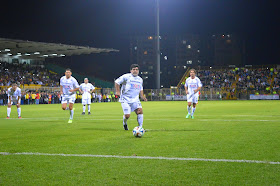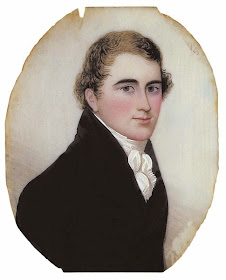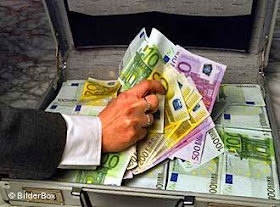This blog tends not to do blatant advertising, but there are exceptions to that from time to time. And when it’s for a fun and, um, worthy cause, you could say that it’s almost obligatory to do so.
You see, a few months back I had to make a ‘dash’ home to Ireland for a family event. While there, I had the pleasure of going to a good old pub table quiz, a regular event back in the old country (it’s why the Irish are so knowledgeable!). Having been based in Bogotá for well over three years now, I’d almost forgotten about such simple delights.
So with a bit of pep in my step on my return to Colombia, I decided to look into having a quiz night here. And after a few weeks of planning, having found a willing, able partner in my good Dutch friend and an obliging venue, the Irish-styled The Pub, we’re set to go with our first ‘grand table quiz night’ this Wednesday 29 April. (This inaugural one takes place in The Pub’s Zona T headquarters.)
For the uninitiated, the format is quite simple. Teams from four to six people, eight rounds of ten questions quizzing you on a range of topics in a mixture of audio, verbal and picture formats. All you have to do is try to answer correctly (and honestly; leave the smartphones in your pocket) as many as you can. The winning team wins some excellent prizes courtesy of the venue and our sponsors.
If you’re still not that sure about it, our promotional video (below) should see you right. It’s open to all, so we hope to see you there!
Follow IQuiz Bogotá on Twitter and like us on Facebook.
 |
| IQuiz Bogotá: Coming to a The Pub venue near you soon! |
You see, a few months back I had to make a ‘dash’ home to Ireland for a family event. While there, I had the pleasure of going to a good old pub table quiz, a regular event back in the old country (it’s why the Irish are so knowledgeable!). Having been based in Bogotá for well over three years now, I’d almost forgotten about such simple delights.
So with a bit of pep in my step on my return to Colombia, I decided to look into having a quiz night here. And after a few weeks of planning, having found a willing, able partner in my good Dutch friend and an obliging venue, the Irish-styled The Pub, we’re set to go with our first ‘grand table quiz night’ this Wednesday 29 April. (This inaugural one takes place in The Pub’s Zona T headquarters.)
For the uninitiated, the format is quite simple. Teams from four to six people, eight rounds of ten questions quizzing you on a range of topics in a mixture of audio, verbal and picture formats. All you have to do is try to answer correctly (and honestly; leave the smartphones in your pocket) as many as you can. The winning team wins some excellent prizes courtesy of the venue and our sponsors.
If you’re still not that sure about it, our promotional video (below) should see you right. It’s open to all, so we hope to see you there!
Follow IQuiz Bogotá on Twitter and like us on Facebook.





